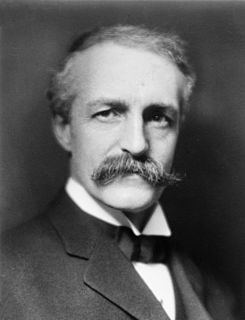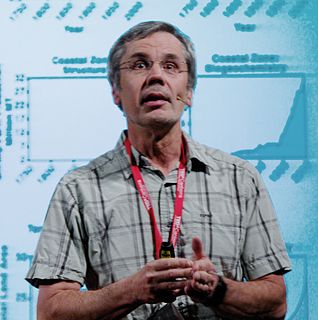A Quote by Paul Polman
We cannot eliminate poverty without enabling developing countries to engage more people in economic activity that use natural resources, and we cannot resolve runaway climate change without creating wealth in a more equitable and less carbon intensive way.
Quote Topics
Activity
Cannot
Carbon
Change
Climate
Climate Change
Countries
Creating
Creating Wealth
Developing
Developing Countries
Economic
Economic Activity
Eliminate
Enabling
Engage
Equitable
Intensive
Less
More
More People
Natural
Natural Resources
People
Poverty
Resolve
Resources
Runaway
Use
Way
We Cannot
Wealth
Without
Related Quotes
Exporters monitor economic and political policies to the developing world, but the consequences of that have been to make developing countries far more sensitive to the constant fluctuations. Developing countries are not always allowed to support their farmers in the same way as the U.S. or Europe is. They're not allowed to have tariff barriers. They're forced, more or less, to shrink their social programs. The very poorest people have fewer and fewer entitlements. The consequence of this has been that there's been a chronic increase in the vulnerability of those economies to price shocks.
Climate change is...a gross injustice-poor people in developing countries bear over 90% of the burden-through death, disease, destitution and financial loss-yet are least responsible for creating the problem. Despite this, funding from rich countries to help the poor and vulnerable adapt to climate change is not even 1 percent of what is needed.
We need to use economic instruments such as carbon taxes, cap and trade, tax and dividend and whatever else to help incentivize behavior that will move us to a post-carbon, post-animal agriculture world, and make our societies more resilient to the shocks that are already baked into the system. But that doesn't make climate change an "economic issue."
Poverty - the greatest cause of human suffering on the planet - is itself exacerbated by conflict, competition for resources, injustice, even the global downturn and climate change. Diseases like AIDS, TB and malaria cannot be tackled without adequate resources. So you see everything is connected. In order to address any major cause of human suffering, we have to work together across many fronts.
We need to create jobs for 300,000 youth graduating from high school in the next three years. We need to produce growth so we can have an economic system that can turn our natural wealth into a productive system. We need services, because poverty reduction cannot take place without effective citizenship.
Without natural resources life itself is impossible. From birth to death, natural resources, transformed for human use, feed, clothe, shelter, and transport us. Upon them we depend for every material necessity, comfort, convenience, and protection in our lives. Without abundant resources prosperity is out of reach.
Climate change hype has grave real world consequences. It gets rich countries to adopt silly policies and to impose devastating eco-imperialism on poor countries. The world's rich millions can afford environmental extremism; its poor billions can't. Climate change pseudo-science about human causality has been exposed repeatedly. What's less appreciated is that there aren't more natural disasters in need of an explanation.
With the growth of the world population, the global climate change and the need for a greater healthy environment, access to water resources has become a crucial condition for the realization of an equitable international order, where the needs of the peoples are effectively addressed. In this regard, the need for international cooperation, including in joint effort with relevant non-state actors, is paramount to ensure water is made available to all without discrimination. Water is a human right, an enabling right, not a mere commodity.
I don't think anybody has the right to a huge family. There's already more people on the planet than our natural resources can even support, and if everybody were to have a high standard of living, we need three or four or five new planets to provide the resources. And this cannot be, so something has to change.
So that in the first place, I put for a general inclination of all mankind a perpetual and restless desire of Power after power, that ceaseth only in Death. And the cause of this is not always that a man hopes for a more intensive delight than he has already attained to, or that he cannot be content with a moderate power: but because he cannot assure the power and means to live well, which he hath present, without the acquisition of more.
Our supplies of natural resources are not finite in any economic sense. Nor does past experience give reason to expect natural resources to become more scarce. Rather, if history is any guide, natural resources will progressively become less costly, hence less scarce, and will constitute a smaller proportion of our expenses in future years.



































